News
Leading regulatory updates in Asia in 2025
7 Feb 2025As we head into 2025, numerous legislators around Asia are suggesting and solidifying legal updates and changes that will impact the food and beverage space.
According to data provider Statista, Asia’s food and beverage industry is expected to continue to grow at an annual growth rate of 8.66% between 2022 and 2029. By 2029, the continent is anticipated to reach a projected market volume of $1.84 billion (€1.78 bn).

The legal landscape will shape the trajectory of the food and beverage sector over the coming years. Here, we take a look at some of the main regulatory updates set to take place in 2025.
- European Union Deforestation Regulation (EUDR) implementation date arrives
- Singapore seeks to strengthen food safety, security and health
- Indonesia introduces halal food law
- Thailand welcomes revised logo
- The Philippines’ FDA launches food classification guidance
Despite the European Council agreeing last year to extend the application timeline for the introduction of the EUDR to December 2025, it still poses uncertainty. If confirmed, Asia-based producers are waiting to hear on the exact specifications of the regulation and how they will need to modify their food operations to comply with its rules.
What is known is that the EUDR applies to non-EU companies, with the European Commission stipulating that any company that puts a relevant commodity on the market or exports it to the EU falls under the scope of the regulation. Additionally, the EUDR stipulates that any company that places a product on the market for commercial purposes, but which is not an operator, is still classed as a trader and is subject to regulatory compliance.
Large-scale palm oil producers Malaysia and Indonesia are among the countries that have implemented traceability tools in recognition of the regulation’s aims to lower deforestation and forest degradation.
Indonesia launched its National Dashboard for Sustainable Commodity Data and Information, while Malaysia developed its Sawit Intelligent Management System (SIMS), Geopalm Portal, and MSPO Trace systems. National certification schemes also exist, including for Malaysian Sustainable Palm Oil (MSPO) and Indonesian Sustainable Palm Oil (ISPO).
In December 2024, the European Commission introduced its EUDR implementation system, which it said was an “important step in preparation for application of law”. While countries in Asia are already implementing changes ahead of the regulation’s arrival, they are seeking more clarification of exactly how it will look when it comes into effect.
On 8 January, Singapore passed its Food Safety and Security Bill (FSSB). The act, which will be implemented in phases between 2025 and 2028, seeks to modernise Singapore's food safety regulatory system and bolster its current food chain resilience, thereby strengthening its overall safety and security. It also aims to bring different pieces of relevant food legislation together under one law and give the director-general of the food administration new powers to spur more effective and faster actions in response to food safety concerns.
In 2025, Singapore is also preparing to expand its Nutri-Grade traffic light labelling system on food and beverages. The update will soon include sodium and saturated fat. The move comes as part of efforts by Singapore’s Ministry of Health to promote healthier diets with better-for-you food and beverage choices.
With the system’s expanded rollout, the Singaporean authority is also hoping it will prompt reformulations and decrease the influence advertising has on consumers’ dietary choices.
The World Health Organization (WHO) awarded Singapore with an accolade for its Nutri-Grade labelling scheme. Singapore was one of eight cities across Asia that received the 2024 WHO Healthy Cities Recognition Awards for exceptional achievement in promoting health and wellbeing.
The WHO gave Singapore the award in response to its efforts in “transforming food environments for healthy diets and optimal nutrition”. It praised the country’s front-of-pack labelling system and ban on advertising unhealthy drinks as a mechanism to empower consumers to make healthier choices.
In 2025, operators will be adjusting their formulations and production methods in response to Indonesia’s new halal food law. After opening its registration system, Foreign Halal Certificate Registration (SHLN), in July 2024, companies now importing products into the Indonesian food market will need to adopt new halal requirements.
Under Article 4 of Law No. 33 2014, which relates to halal product assurance, operators seeking to import products into Indonesia will need to ensure they are halal-certified or must have obtained halal certification to enter the country.
The move comes after the halal product assurance organising body, Badan Penyelenggara Jaminan Produk Halal (BPJPH), announced plans in 2023 to implement new halal requirements and issue halal certificates. The BPJPH hopes the new system will protect the Indonesian population’s public health.
On 3 January, the Thai food authorities accepted a revision to the existing Healthier Choice logo, prompting a change in the industry's labelling requirements. The Subcommittee on the Development and Promotion of Nutrition Labelling is reported to have officially given the green light to a new nutrition profile model for the Healthier Choice logo.
Proposed in 2024, the new logo will now come with several specifications, including lowering the sugar limits from 6 to 5 g per 100 ml, implementing sodium limits for broth cubes, and ensuring that fermented plant-based milk meets certain requirements, enabling the adoption of the Healthier Choice logo on relevant product packaging.
On 6 January, the Philippines Food and Drug Administration (FDA) published guidance on classifying products as food or drugs, along with information on Good Manufacturing Practices (GMP) for health supplements.
The classification details the criteria relating to vitamins and minerals for them to be classed as a food under Philippine regulations. Only those without clinical therapeutic indications, therapeutic claims, and those that are not used to correct nutritional deficiencies are described as foods. The FDA also sets out dosing limits on vitamins and minerals classified as food.
Vitamin and mineral manufacturers that, based on the new classification guidance, need to reformulate their products, need to first file an application before their product registration certificate expires.
Related news

NMN: An on-trend ‘fountain of youth’ ingredient for anti-ageing products
24 Oct 2025
Dubbed an “on-trend fountain of youth ingredient” by Mintel, NMN is booming in anti-ageing ingestible products in Asia – but regulatory roadblocks are thwarting NPD efforts elsewhere, say experts.
Read more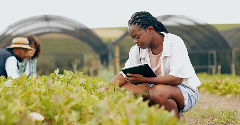
Food security-insecurity gap grows, hitting vulnerable regions hardest
16 Oct 2025
While food security has increased in most countries, the world’s most vulnerable nations’ struggles continue and intensify, a USDA analysis reveals.
Read more
India’s biscuit and cookie consumers want extra indulgence
16 Sep 2025
Premiumisation, health consciousness, and a focus on texture are driving new product developments (NPD) in the Indian biscuit and cookie market, Mintel figures suggest.
Read more
Climate change threatens matcha supplies as social media fuels matcha mania
8 Sep 2025
Matcha’s popularity is rising across the globe, yet shrinking harvests caused by record-breaking heatwaves in Japan are dwindling global supplies.
Read more
Australia's snacking sector achieves near-universal appeal
22 Aug 2025
As many as 99% of Australian consumers snack daily, with generational differences and increasing demands presenting novel manufacturing opportunities, according to Mintel data.
Read more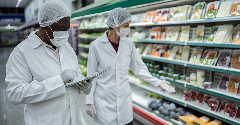
World Food Safety Day shines a spotlight on science
19 Jun 2025
On 7 June, the World Health Organization (WHO) held its annual World Food Safety Day, highlighting the role scientific research and innovation play in supporting consumers’ health.
Read more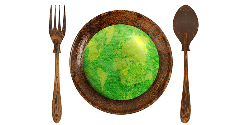
Africa and Middle East most vulnerable markets to food fraud
28 May 2025
Consumers in Africa and the Middle East face a higher risk of consuming adulterated foods – especially with tariffs causing chaos in the global food supply chain, experts warn.
Read more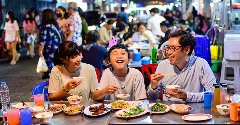
East takes on West in the fight for future food flavours
30 Apr 2025
Asian and South American flavours are now key components on global menus, driven by a growing global appetite for culinary mashups.
Read more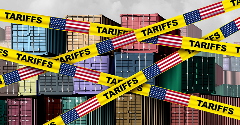
Will Trump lower tariff hikes?
25 Apr 2025
The US President’s plan to reduce the 145% tariffs on China’s food and beverage market raises questions over whether a turnaround is likely for other regions.
Read more
Future F&B flavours favour exploration and explosive taste profiles
25 Mar 2025
Exploration and experimentation will define the future of flavour, according to Mintel, as consumers seek out taste profiles and textures that offer an adventurous eating experience.
Read more